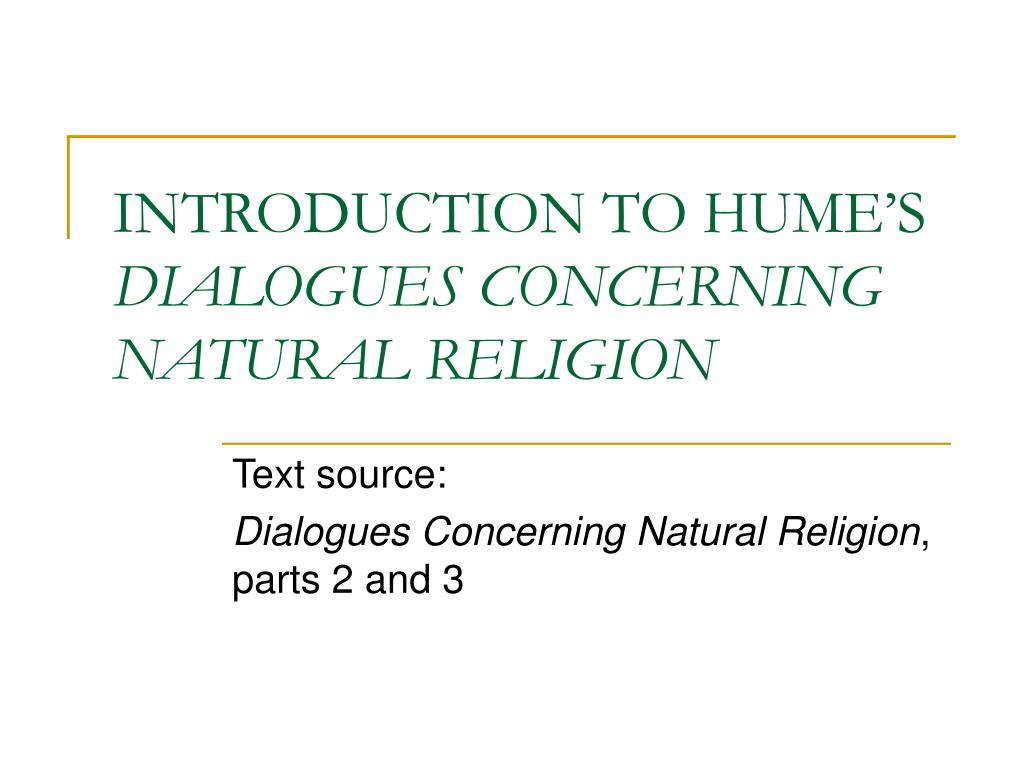



In clear, evocative prose, the debate's participants state and defend their positions, most of which center on the concept currently known as Intelligent Design. Hume's characters discuss God's existence, his divinity and attributes, and the reasons behind his creation of the world. This classic examines its controversial subject in the well-known manner of the Platonic dialogues. Publisher: Oxford University Press ISBN: 9780199538324 Number of pages: 256 Weight: 183 g Dimensions: 195 x 127 x 14 mm You may also be interested in.About the Book Equally captivating as a philosophical argument and as a work of literature, this classic is particularly relevant in terms of its criticism of the reasoning behind Intelligent Design.īook Synopsis How can we know that God exists? Is it possible to find proof of religion's most significant issues? Can we presume that the orderliness of the universe offers evidence of a purposeful creator? David Hume's Dialogues Concerning Natural Religion explores these perennial questions in a thought-provoking and highly readable style. Each affordable volume reflects Oxford's commitment to scholarship, providing the most accurate text plus a wealth of other valuable features, including expert introductions by leading authorities, helpful notes to clarify the text, up-to-date bibliographies for further study, and much more. This edition also includes Section XI of The Enquiry Concerning Human Understanding and a letter concerning the Dialogues, as well as particularly helpful critical apparatus and abstracts of the main texts, enabling the reader to locate or relocate key topics.ĪBOUT THE SERIES: For over 100 years Oxford World's Classics has made available the widest range of literature from around the globe. Together they constitute the most formidable attack upon the rationality of religious belief ever mounted by a philosopher. The Natural History of Religion investigates the origins of belief, and follows its development from harmless polytheism to dogmatic monotheism. The Dialogues ask if belief in God can be inferred from the nature of the universe or whether it is even consistent with what we know about the universe. No philosopher is more important for his careful, critical, and deeply perceptive examination of the grounds for belief in divine powers and for his sceptical accounts of the causes and consequences of religious belief, expressed most powerfully in the Dialogues Concerning Natural Religion and The Natural History of Religion. David Hume is the greatest and also one of the most provocative philosophers to have written in the English language.


 0 kommentar(er)
0 kommentar(er)
